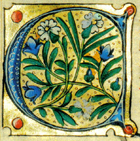Scotland
Bro Skoz


Lanarkshire
***
| Noms de lieux | Noms de personnes |
|
Scotland Bro Skoz |
|
Lanarkshire *** |
 astledykes astledykes |
Corda
| page ouverte le 02.08.2004 | forum de discussion
* forum du site Marikavel : Academia Celtica |
dernière mise à jour : 09/04/2009 13:19:55 |
![]()
|
Définition : lieux d'Écosse, dans le comté de Lanarkshire. Ancien camp romain : CORDA. |
|
![]()
|
Extrait de la carte Ordnance Survey : Map of Roman Britain. |
![]()
|
Histoire Sur le territoire de la tribu des Selgovae. |
![]()
| Étymologie
:
* Rivet & Smith, Place-Names of Roman Britain, p 316-317 : - Ptolémée II,3,6 : Korda ( = CORDA), une polis des Selgovae. - Ravenna, 10738 : CORDA. DERIVATION. This name seems always to have been taken at face-value, perhaps rightly (but see below). Williams suggests a root *kerdho- 'herd, host', perhaps connected with Irish crod 'cattle'; from this R&C concluded that the name referred to the 'hosting-place' or tribal centre. Rostaing ETP 149 identifies a pre-Indo-European root *kor-d- *kor-, a variant of *kar- 'rock', which may be present in the name of a mountain in Provence, Cordes ('in Cordoa', 1221), from *kor-d-owa; this is analogous to Corduba > Cordoba in Spain, a very ancient name usually held to be Iberian, that is non-Indo-European. There is also Cordanum insula > Cordouan (Gironde, France). However, we have no right to suppose derivation from a non-Celtic element until all else has failed. It is possible that R&C were right, by accident, as it were, at least with regard to the sense of the name. It will be noted that in II, 3, 7 Ptolemy lists the poleis of the D(u)mnonii of Scotland, followed by those of the (V)otadini. Among these are a Coria for each people, our Coria (Dumnoniorum) and Coria (Votadinorum). In II, 3, 6, Ptolemy lists the poleis of the Selgovae; what more natural than that he should list a Coria (Selgovarum) for them also? Our present Corda could very well be for Coria. That the name occurs as Corda in Ravenna also is no guarantee of accuracy; as shown on p. 193, both Ptolemy and Ravenna depended ultimately on the Flavian military map of N. Britain, on which an unclear -i- could have been misread as a -d-. If this is right, the name is indeed 'hosting-place, tribal centre', and is in line with the other Coria names of N. Britain. IDENTIFICATION. Probably the Roman fort at Castledykes, Lanarkshire (NS 9244), the name being transferred from a native meeting-place which it controlled. Signification : ' centre tribal; lieu d'hébergement (hosting-place)'. --------------- Étymologie anglaise de Castledykes : non listée chez nos auteurs de référence. Mais il est assez facile de reconstituer une étymologie à partir de castle = camp (ici, un ancien camp romain), + dyke = fossé. (cf anglais : ditch) |
![]()
|
Sources : * Eilert EKWALL : Dictionary of English Place-Names. Oxford * C.T ONIONS : The Oxford Dictionary of English Etymology. Oxford Clarendon Press.1966. * ALF RIVET & Colin SMITH : The Place-Names of Roman Britain. Batsford Ltd. 1979. * A.D MILLS : Oxford Dictionary of British Place-names. Oxford University Press. 1991. 2003. - envoi de ** |
![]()
|
* lien communal officiel : * forum du site Marikavel : Academia-celtica hast buan, ma mignonig go fast, my little friend |
![]()